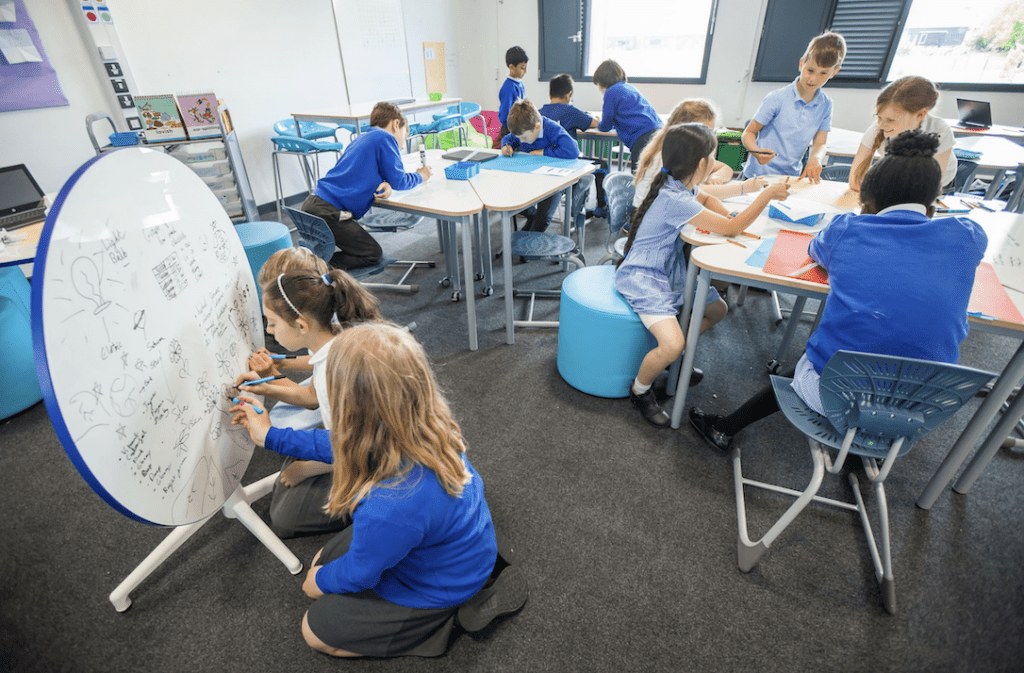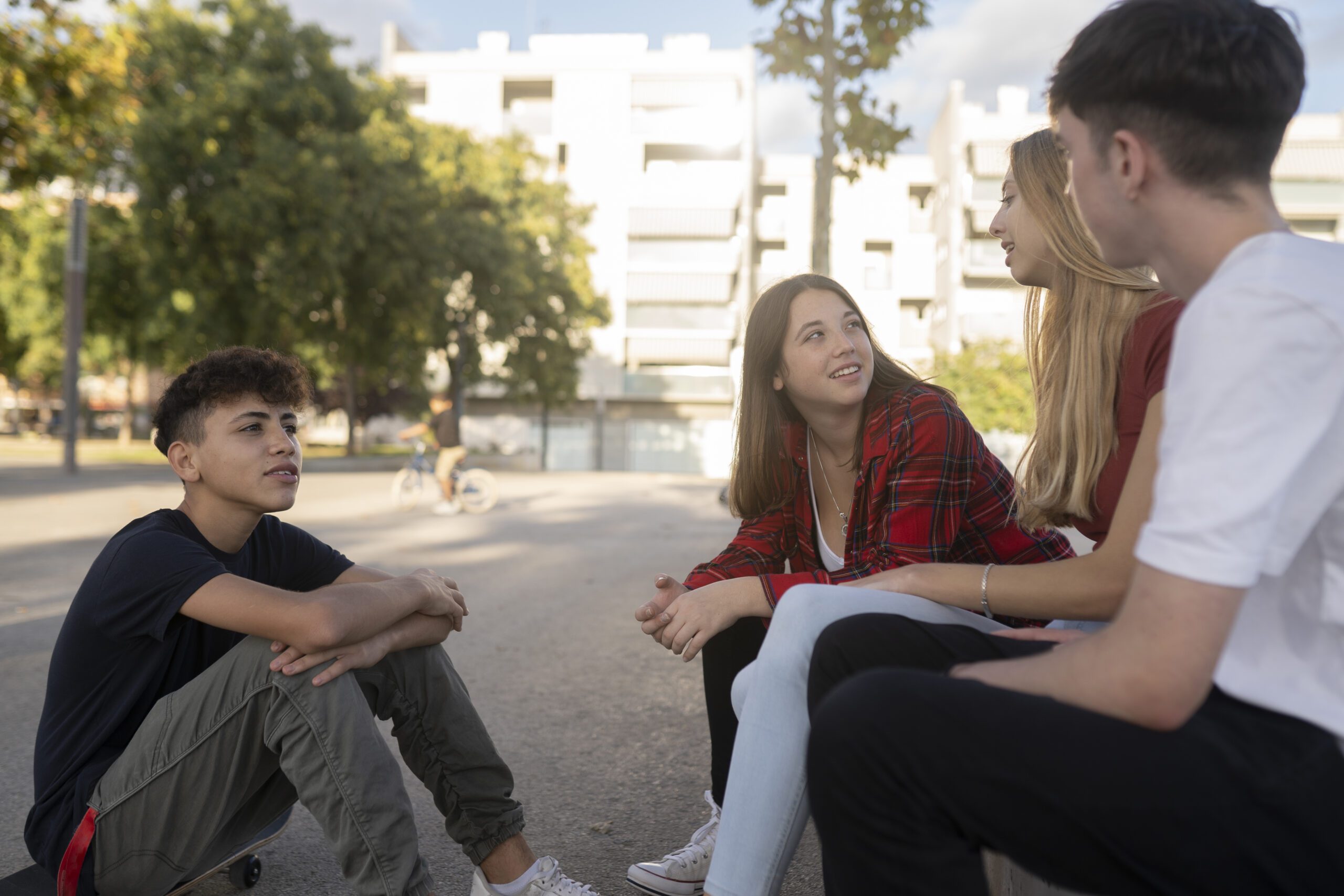Our Story

It started in an inclusive experiential learning setting
Our story started many years ago when Diane attended the first alternative high school in Scarborough, Ontario called Alternative Scarborough Education (A.S.E.). A.S.E was a unique learning environment where students constructed their own learning through collaborative student-teacher relationships. After three years of experiential learning with other diverse learners, Diane professes her passion for life-long learning and her desire to be an educator and educational therapist was derived from her experience at A.S.E.
In 1998, Diane and Mike had their first child who was born with autism. Their son’s first experience with formal learning was in a warm, caring, student centered Montessori school. Despite the learning challenges he later experienced in the traditional public school system, Diane and Mike believe that this initial welcoming and inclusive school experience has contributed to their son’s positive outlook on life today. In order to meet his learning needs, a roller coaster education consisted of segregated and integrated, small and large classes in private, public districts and separate catholic systems.17-27% of students across Canada require special education support
Although very different learners, Diane and Mike’s children both had a fear of standing out in class or receiving support that was different from everyone else. Even if warranted, they did not want to be accommodated with extra time for tests or assistive technology not available to everyone. Unfortunately, many students continue to face this issue today regardless of their learning diversity, making it sometimes difficult for teachers to identify and support the needs of all students in inclusive classrooms. With the growing number of 17-27% of students across Canada requiring special education support, it is becoming more challenging to provide students with the support they need (People for Education, 2019).
Diane attempted to tackle this challenge when she left a career of senior management roles in the financial services industry to make a difference in the lives of vulnerable children in the education sector.

Our Solutions
After successfully growing an in-home tutoring franchise, Diane returned to university to complete a Master of Education degree, followed by a Doctor of Philosophy in Educational Studies. Her interests include inclusive education, assessments and teacher professional development. Diane also maintains postgraduate certificates in Educational Therapy and Adult Training and Development. Diane is past Vice Chair of the Special Education Advisory Committee for the Toronto District School Board, and a member of Inclusion Action in Ontario and the Association of Educational Therapists.
Teachers in Diane’s (Montgomery, 2022) inclusive education study who maintain thriving inclusive classrooms attributed their success to building strong student-teacher relationships and providing students with voice and choice in their learning. However, teachers in other studies (Alahmari, 2019; Cowan & Maxwell, 2015; Goodrow, 2016; Trembley & Belley, 2017) have expressed challenges in identifying and supporting the needs of students due to lack of time, and limited resources and training. Diane and Mike have developed solutions at Study Smart to try and address both the needs of students and challenges of teachers in inclusive classrooms. These include;
- A student-initiated web mobile screening tool for students to communicate their strengths, needs, interests, learning preferences and motivations
- An automated class profile for teachers to build relationships with students early in the school year
- A student-owned learning plan for students to take action in enhancing their academic and learning skills
- A library of universal design for learning (UDL) lessons created by teachers to save teachers time in lesson planning
- A collection of engaging activities to increase student motivation and help students become more accountable for their learning
Publications
Montgomery, D & Snow, K. (2024). Supporting students with diverse learning needs using universal design for learning in online learning: Voice of the students. Journal of Teaching and Learning, 18(2), 55-72. https://doi.org/10.22329/jtl.v18i2.7453 Montgomery, D. P., Montgomery, M., & Montgomery, M. (2023). Theories of Motivation to Support the Needs of All Learners. LEARNing Landscapes, 16(1), 213-227. https://doi.org/10.36510/learnland.v16i1.1098 Montgomery, D. (2022). The integration of technology with UDL and RTI in inclusive classrooms. Conference Proceedings of the Open/Technology in Education, Society, and Scholarship Association Conference, 2022. https://doi.org/10.18357/otessac.2022.2.1.70 Montgomery, D. (2022). Integrating technology with instructional frameworks to support all learners in inclusive classrooms. The Open/Technology in Education, Society, and Scholarship Association Journal, 2(2), 1–16. https://doi.org/10.18357/otessaj.2022.2.2.31 Montgomery, D. (2022). (Review of the Book: Colour Matters: Essays on the Experiences, Education and Pursuits of Black Youth, by C. James). Canadian Journal of Education. Vol. 45, Issue 3, Autumn 2022. https://www.erudit.org/en/journals/cje/2022-v45-n3-cje07386/1093001ar/ Montgomery, D. (2022). The tiered approach to support all learners in inclusive classrooms. Thesis, UPEI. https://islandscholar.ca/islandora/object/ir%3A24372*
Inclusive education is the future
In Montgomery’s (2022) study of elementary school teachers at an Ontario school board, one teacher stated technology levelled the playing field for students with disabilities but should be available to all students. She said “It is like the idea of a ramp, the ramp is there for people that need it, but I enjoyed the ramp and I also enjoy the automated doors.” Another teacher included technology, specifically the use of Chrome books, in the Individual Education Plan (IEP) of each student because a lot of accommodations for reading and writing are embedded into Chrome book laptops and tablets. Most of the teachers said they consider accommodations in the IEP that would benefit all students in their class. One teacher said “Why can’t everyone have extra time? Why can’t everyone use visuals? Why can’t everyone have access to a good anchor? If everybody’s accessing universal accommodations then less IEPs are needed.” Although the teachers were receptive to accommodating the needs of individual students with an IEP, they shared ways they considered universal accommodations and adaptations through universal design for learning and differentiated instruction.More than 5 million students in Canada receive education in a public school setting
At least half of all students requiring special education support do not have an identified disability
Only 44% of students report being engaged in their classroom learning
Start Collectively Engaging in Learning that Matters!
When students are provided with voice and choice in learning, they wil become more accountable, engaged and motivated to learn.





